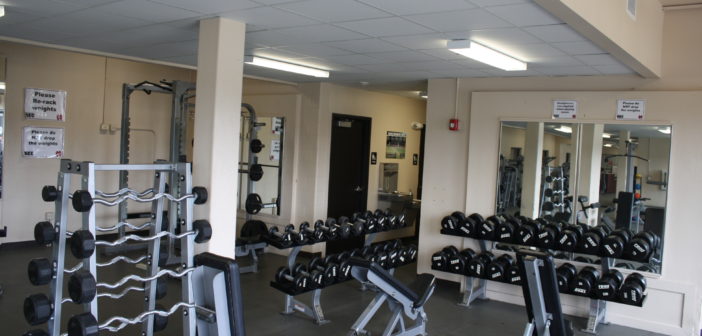Athletes are like an old functioning car. A lot of times they need a tune-up or an oil change. Sometimes they break down and you can fix it up yourself or if it’s bad enough you need to call the mechanic again. For an athlete, their body is the old, rusty car and the athletic trainer is their mechanic.
Athletic training is becoming a popular profession, and according to studentscholarships.org, it’s the fastest growing occupation with a 24.3 percent projected growth rate in the next 10 years.
For some, being an athlete has inspired them to pursue this career.
“I know that I’ll be done with playing sports by the end of college, so I guess I’m just not ready to leave the atmosphere and I really want to be able to help people get through their injuries because I know how tough that can be,” said athletic training major Hannah Vitkus.
Some may think that athletic trainers only work for sports teams. This is not the case.
According to the National Athletic Trainer’s Association, not only does the profession land you at schools or with a team, it also can lead you all the way up to becoming a state leader which would allow you to be a part of a committee which could help discuss and solve potential issues for the profession.
Some athletic trainers pursue the highest of rankings, but some have found their home with a team or school that they love.
North Central athletic trainer Lyndi Fuemmeler said, “North Central has me set up nice. It’s in a great town obviously… and I work in a great facility with great and hardworking students and athletes. Don’t see myself going anywhere anytime soon and plus, I’m not really interested in politics like some people in this profession are.”
Overall, we generally know the importance of athletic training in sports, but what is really the main goal? What is the mission statement? Do they want to be rehabilitators or injury preventers?
“Our job is the keep everyone as healthy and safe as possible through their season,” Fuemmeler said. “We see that practices are more difficult, so our job gets more important. Injuries will happen, and we’ll help them recover back to normal, but prevention would probably be the most important.”
Vitkus added that “injuries bring you down physically and mentally so if your goal is to keep everyone healthy, you’re going to do everything in your power to keep an athlete from harm.”

